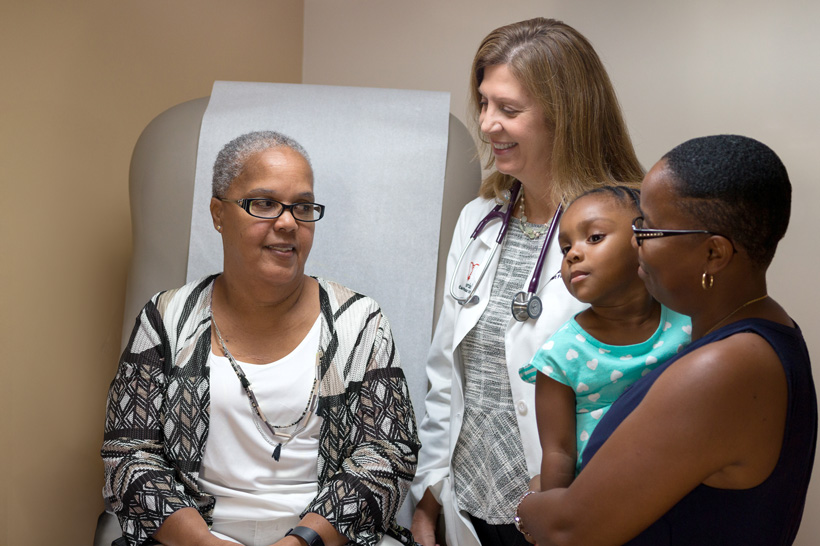Living with Heart Failure
February 08, 2021

Revised July 7, 2022
Memorial's Advanced Heart Failure and Heart Transplantation Program at Memorial Regional Hospital cares for patients with heart failure. This article answers the most common questions you may have about heart failure.
What does it mean to have heart failure?
There is a lot to learn during the heart failure journey after diagnosis. Heart failure, or congestive heart failure, means your heart is not pumping or relaxing as well as it should be. Our bodies depend on the heart to deliver the appropriate amount of oxygen and nutrient-rich blood to the body. Heart failure may start suddenly (acute) or can be ongoing (chronic).
Heart failure can weaken or change the structure of your heart in two ways:

- Weak Heart Muscle: You can develop heart failure with reduced ejection fraction (HFrEF) which means the heart muscle is weak, dilated and stretched which subsequently reduces the pumping ability of the heart. A reduced ejection fraction is considered 40% or less.
- Thickened Heart Muscle: A thickened heart muscle means the heart’s muscle is too stiff to relax properly and not enough blood is allowed to get into the chambers. This is called heart failure with preserved ejection fraction (HFpEF) and results in less blood being available for pumping out to the body.
What causes heart failure?
There are many conditions and causes that lead to the development of heart failure. The most common conditions that can damage the heart or make it work too hard are:
- Abnormal heart valves
- Birth heart defects
- Coronary artery disease
- Heart muscle disease
- High blood pressure
- Previous heart attack
- Severe lung disease
If you have heart failure, there is a chance you have, or have had, one of these common conditions.
In addition, lifestyle factors contribute to heart disease as well, such as smoking, inactivity, obesity and poor eating habits as these can also lead to developing heart failure.
In Delores’s case, her cancer treatment, which included chemotherapy and radiation, led to her heart failure – even though she received treatment 20 years before she developed symptoms. Despite being life-saving treatments, these cancer therapies may cause problems in the heart and are called cardiotoxic.
Not all cancer treatments cause damage to the heart. Often the cardiologist and oncologist will work together and implement strategies to monitor and reduce the risk of cardiotoxicity.
Should I worry if I have symptoms such as shortness of breath?
Signs and symptoms of heart failure can range from none, mild to severe, or they may be constant or intermittent. You should always seek medical attention if new symptoms arise. The most common symptoms include:
- Shortness of breath at rest, while asleep or with activity.
- Swelling in the feet, ankles, legs, and/or abdomen.
- Unexplained weight gain in a short amount of time
- Feeling unusually tired and having difficulty with everyday activities such as walking, climbing stairs, doing laundry or grocery shopping.
- Poor appetite, feeling full, and sometimes even nausea.
- Palpitations or feeling as though your heart is racing.
How is heart failure diagnosed?
The first thing to do is see your doctor for a thorough evaluation. You will be asked many questions about your symptoms and your medical history. Certain tests, such as an echocardiogram, will be ordered to see how your heart is functioning and to help determine if your symptoms are the result of a heart problem. You may also be asked to have a cardiac catheterization since coronary artery disease is the leading cause of heart failure. Other testing may include lab work, a cardiac MRI and others.
What are the most common treatment options?
Since heart failure is a progressive disorder, it is imperative that you follow all of your doctor’s advice.
Oral Medications
Initially, the following oral medications will be prescribed because they have been studied extensively in clinical trials to improve symptoms, prolong life, and keep people from being hospitalized.
- Ace Inhibitors
- Angiotensin Receptor Blockers
- Entresto
- Beta-blockers
Lifestyle
By adopting the following lifestyle changes, you can help slow the diseases progression and improve your quality of life.

- Be physically active
- Get enough sleep
- Keep track of fluid intake
- Maintain an appropriate weight
- Manage stress level are vital every day
- Quit smoking
- Reduce sodium in the diet
What happens if medication fails?
When traditional treatment options fail, it may be the right time to see an advanced heart failure specialist.
When we first met Delores, she was extremely ill and initially responded to medication. Soon thereafter, it was determined her heart was failing rapidly and she was placed on a continuous intravenous (IV) medication to provide support for her heart. After eight months, she was able to be taken off of the the IV medication and continues to do well on medical therapy.
Other advanced heart failure options include placement of a ventricular assist device (heart pump) or heart transplant.
How do people successfully live with heart failure?
Delores attributes her success to keeping in tune with her body and learning as much as she could to better manage her heart failure. She came to all her appointments and followed our advice to a tee. She also had an amazing circle of family and friends who provided support. She feels her family helped her be motivated and accountable to sticking with her prescribed plan.
We were all amazed by Delores’s positive attitude and we believe that is why she is a survivor. Her heart failure treatment has kept her from needing a heart transplant.
Visit our heart failure page for more information on how our advanced heart failure specialists can help you.
